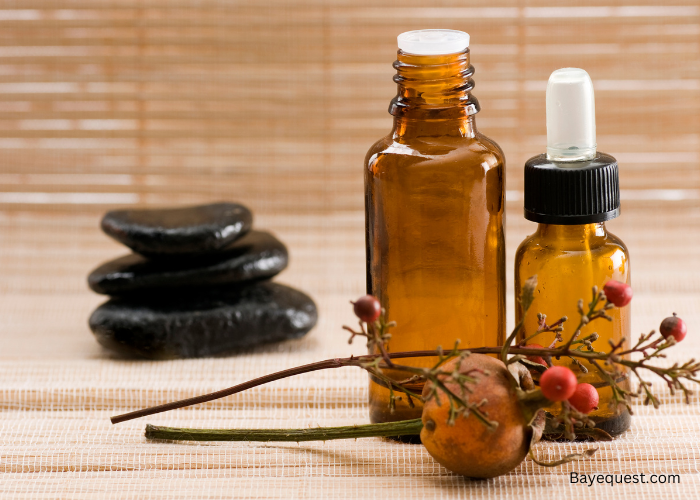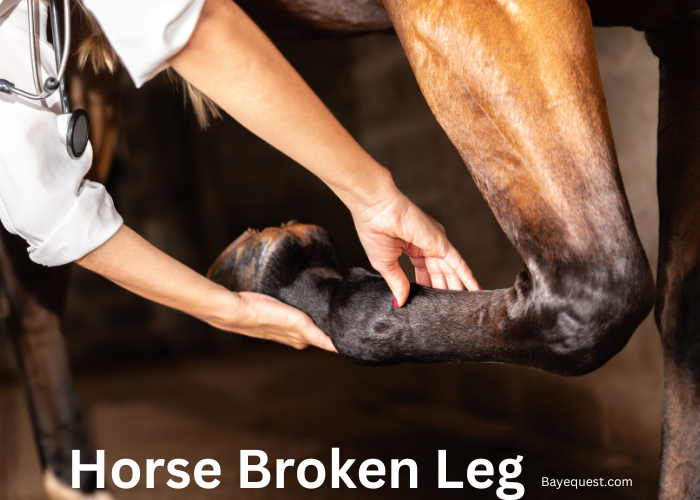Best Oil to Feed Horses For Weight Gain
Keeping a horse at a healthy weight isn’t always easy. Sometimes, even the best feed doesn’t do the trick.
That’s where oils come in. They’re packed with calories and easy for horses to digest, giving them that extra boost they need to gain weight.
But not all oils are the same. Some work wonders, while others might fall short.
In this guide, we’ll dive into the best oils for helping your horse put on healthy weight.
Let’s get started on finding the right oil to fuel their growth.
What is the Best Oil to Feed Horses for Weight Gain? Key Takeaway
The best oil for horses needing weight gain is canola oil, providing high calories and a balanced omega-3 to omega-6 ratio. Other top oils include rice bran, flaxseed, and coconut oil, each supporting healthy weight gain, coat shine, and overall health in horses.
Do Horses Need Extra Oil?
Horses don’t always need extra oil, but it can help in certain cases. Some horses have trouble keeping weight on, and oil is packed with calories.
It gives them that extra boost without needing to eat more feed.
For horses in heavy work or with higher energy needs, oil can be a good addition too.
Plus, certain oils are great for their coat, joints, and overall health.
But remember, not every horse needs it. Always start slow and see how they respond.
How Much Oil Should You Feed Horses for Weight Gain?
The amount of oil you should feed a horse depends on the goal.
For a shiny coat, about 80 to 120 ml (one-third to one-half cup) daily can do the trick.
But if you’re looking to boost calories for weight gain, you might go up to 500 ml (around 2 cups) per day.
Start small, with about 60 ml, and increase gradually to prevent digestive issues.
Also, always keep an eye on your horse’s response, and check with your vet to find the best amount for their health and weight needs.
Best Oil to Feed Horses for Weight Gain
The best oil for weight gain in horses is canola oil. It’s calorie-dense, cost-effective, and widely available.
Canola oil provides a balanced amount of omega-3 and omega-6 fatty acids, which can support healthy weight gain, coat quality, and overall health.
Start with a small amount and gradually increase it to ensure your horse adjusts well.
Characteristics and benefits of canola oil
Canola oil has several characteristics that make it beneficial for horses, especially for weight gain.
These characteristics include:
1. High caloric density
Canola oil is energy-dense, providing about 120 calories per tablespoon, which can help horses gain weight.
2. Omega fatty acids
It has a good balance of omega-3 and omega-6 fatty acids, promoting healthy skin, a shiny coat, and reducing inflammation.
3. Mild flavor
Canola oil has a neutral taste and smell, making it palatable for most horses.
4. Cost-effective
Compared to other oils, canola oil is affordable and widely available.
5. High smoke point
While this feature benefits cooking, it also means canola oil remains stable, so it doesn’t go rancid as quickly.
6. Low saturated fat
Canola oil is lower in saturated fats compared to other oils, which may be gentler on a horse’s digestive system when used in moderation.
7. Digestibility
It’s easy for horses to digest, providing an energy boost without causing digestive upset when introduced slowly.
How to extract canola oil
Canola oil is made from the seeds of the canola plant.
First, harvested seeds are cleaned to remove any dirt or debris.
After cleaning, the seeds are heated slightly to soften them. This makes it easier to get the oil out.
Next, the seeds are flattened into thin flakes using roller mills. These flakes go through a pressing process to squeeze out the oil.
In large-scale production, a solvent like hexane is often added to help extract more oil.
This mixture is then heated to remove the solvent, leaving pure canola oil behind. Finally, the oil is refined.
This involves removing any impurities to make the oil clear and stable.
The refined oil is then filtered and bottled, ready for cooking and other uses.
Canola oil nutritional composition
Here’s a breakdown of the nutritional composition of canola oil per 100 grams:
| Nutrient | Amount per 100 grams |
| Calories | 884 kcal |
| Total fat | 100 grams |
| Monounsaturated fat | 63 grams |
| Polyunsaturated fat | 28 grams |
| Omega-6 (Linoleic Acid) | 19 grams |
| Omega-3 (Alpha-Linolenic Acid) | 9 grams |
| Saturated fat | 7 grams |
| Vitamin E | 17.5 mg |
How to feed Canola oil to horses
Feeding canola oil to horses is simple. However, you need to introduce it gradually.
Start by adding a small amount, like ¼ cup (60 ml), to their feed each day.
This helps the horse adjust to the new addition and reduces the chance of digestive upset.
Over a few weeks, you can slowly increase the amount based on your horse’s needs and weight goals.
Most horses tolerate up to 1 to 2 cups (240 to 480 ml) daily, though you may need less if you’re just adding oil for coat health.
Mix the oil directly into their feed to make it more palatable. Horses accept canola oil well because of its mild taste.
If you’re feeding multiple horses, remember each one may respond differently, so monitor their condition and adjust as needed.
Always consult a vet before making major changes to your horse’s diet.
They can help confirm the right amount and ensure canola oil fits well with other feed elements.
Related read: Average Weight of a Horse.
Other Top Oils to Feed Horses for Weight Gain
While canola oil is a great option, other oils also provide excellent benefits for horses needing to gain weight.
Each type offers unique advantages, from boosting calories to supporting coat and joint health.
Let’s explore some of the top oils you can consider, depending on your horse’s needs.
1. Vegetable oils
Vegetable oils like soybean and corn oil are common choices for adding calories.
They’re affordable, easy to find, and packed with energy.
These oils are rich in omega-6 fatty acids, which help with weight gain and coat shine.
However, they lack omega-3s, so it’s best to use them in moderation. Vegetable oils are also a practical choice if you are on a budget.
2. Rice bran oil
Rice bran oil is popular for its palatability and high-calorie content.
It contains gamma oryzanol, which may support muscle growth along with weight gain.
Horses tend to enjoy the taste, which makes it easy to add to their feed.
Rice bran oil can be pricier, but it’s a good choice for horses in need of extra conditioning.
3. Flaxseed oil (Linseed oil)
Flaxseed oil is packed with omega-3 fatty acids. These fats support joint health, reduce inflammation, and improve coat quality.
It’s ideal for horses with joint issues or those needing anti-inflammatory support.
However, flaxseed oil has a shorter shelf life, so it needs to be stored carefully.
While slightly more expensive, it’s an excellent choice for overall health.
4. Coconut oil
Coconut oil has a unique profile with medium-chain fatty acids, making it easy to digest.
It’s a good choice for horses with sensitive digestive systems.
Coconut oil supports immune health and often has a pleasant taste, which many horses enjoy.
Though it’s on the higher end cost-wise, it’s so useful for horses needing extra calories and digestive support.
5. Fish oil
Fish oil is rich in omega-3s, which provide anti-inflammatory benefits.
It’s also a good option for older horses or those with arthritis.
Fish oil helps support joint health, making it a valuable supplement for horses in heavy work.
However, it has a strong taste, so not all horses accept it readily. Though pricier, it offers unique health benefits.
Benefits of Using Oil for Weight Gain in Horses
Using oil for weight gain in horses offers several benefits:
High-calorie density
Oils are energy-dense, providing more calories in a small volume. This is especially useful for horses that struggle to eat large amounts of feed.
Easy digestibility
Oils are easily digestible, making them a great choice for horses with digestive issues or those who need extra calories without added bulk.
Improved coat and skin health
The omega fatty acids in oils, especially in oils like flaxseed and canola, promote a shiny coat and healthy skin.
Supports joint health
Certain oils, like fish and flaxseed oil, contain anti-inflammatory omega-3 fatty acids.
These oils are also beneficial for joint health, particularly in older or active horses.
Versatile and customizable
Oils allow you to adjust calorie intake without changing the base feed, making it easier to tailor diets to each horse’s needs.
Reduces dust in feed
Adding oil to dry feed can help reduce dust, which is beneficial for horses with respiratory issues.
Factors to Consider When Choosing the Best Oil for Your Horse’s Weight Gain
When choosing the best oil for your horse’s weight gain, consider these key factors:
Cost
Different oils come at varying price points.
Vegetable oils like soybean and corn oil are often more affordable and accessible for long-term feeding.
Specialty oils like flaxseed or fish oil offer additional health benefits but come with a higher price tag.
Canola oil is a middle-ground option, providing good nutritional value at a reasonable cost.
Caloric content
All oils are calorie-dense, but for weight gain, you’ll want an oil that provides high calories without needing to increase feed amounts.
Rice bran and canola oil are great options for calorie boosts, as they offer high energy in small volumes.
Omega-3 to Omega-6 ratio
Omega fatty acids impact inflammation, coat quality, and joint health.
Oils like corn and soybean have high omega-6 levels but lack omega-3s.
Flaxseed oil, on the other hand, is high in omega-3s, supporting joint and coat health.
Canola oil has a more balanced omega-3 to omega-6 ratio, making it a versatile choice for overall health.
Digestibility and palatability
Not all horses accept every oil the same way. Oils like canola and rice bran have a mild taste and are generally well-tolerated.
For horses with digestive sensitivity, coconut oil’s unique medium-chain fatty acids make it easy to digest.
Health goals
Different oils support specific health benefits. If you’re targeting joint health, fish oil’s omega-3s are ideal.
For coat shine and weight gain, canola and flaxseed oils are the best choices.
Tips for Incorporating Oil into a Horse’s Diet
Incorporating oil into your horse’s diet requires a gradual approach to ensure they adjust well and receive the benefits without digestive issues.
Here are some tips:
Start small and increase gradually
Begin with a small amount, such as ¼ cup (60 ml) per day, and gradually increase it over a few weeks.
This allows your horse’s digestive system to adapt and minimizes the risk of upset.
Mix with feed for palatability
Horses often accept oil better when it’s mixed with their regular feed, especially if it has a mild taste.
For oils with a stronger flavor, mixing them thoroughly with grain or pellets can help mask the taste.
Monitor your horse’s response
Keep an eye on their coat, weight, and overall health.
If you see signs of digestive upset, such as loose stools, reduce the amount and reintroduce gradually.
Every horse reacts differently, so you may need to adjust.
Consider the horse’s total diet
Balance the oil with other feeds and ensure that it doesn’t exceed 10% of their total diet.
Too much oil can interfere with nutrient absorption, so moderation is key.
Store oil properly
To prevent oils from going rancid, store them in a cool, dark place and seal them tightly after each use.
Flaxseed and fish oils, in particular, have shorter shelf lives, so be mindful of freshness.
Consult with a veterinarian
Before making major dietary changes, check with a vet to confirm the best amount and type of oil for your horse’s specific needs.
Conclusion
Finding the right oil for your horse’s weight gain can make all the difference.
Oils like canola, rice bran, and flaxseed offer a safe, effective way to boost calories and promote a shiny coat.
Start small, and watch how your horse responds. With a little patience, you’ll see the benefits in their energy, health, and appearance.
Remember, each horse is unique, so choose the oil that fits their needs best. A healthy weight and glowing coat are just a few drops away.








